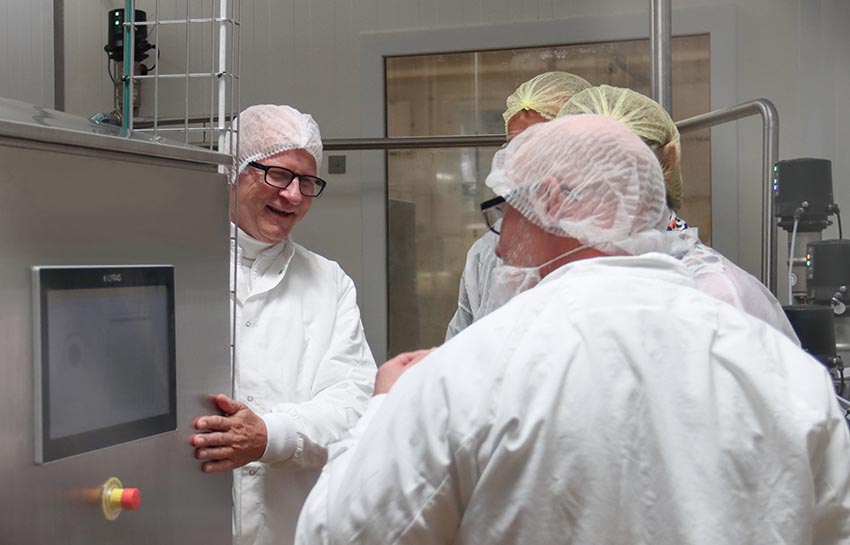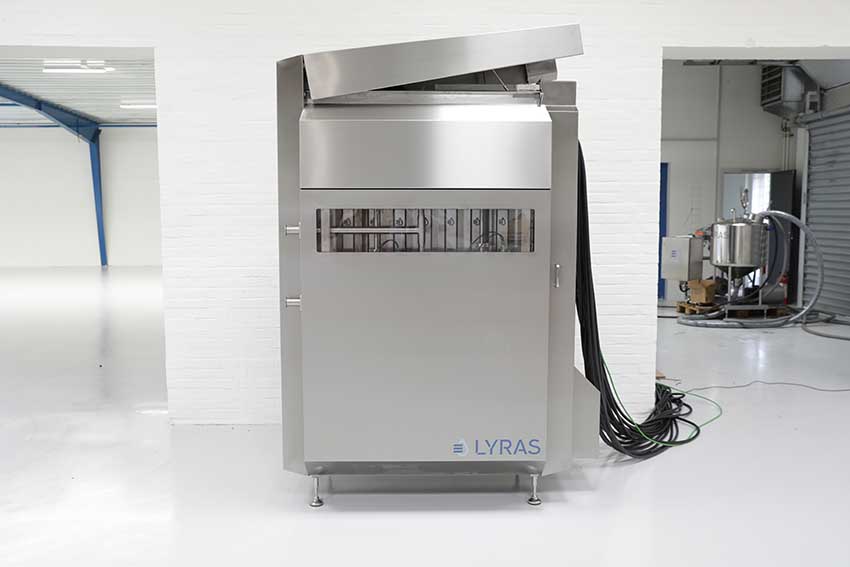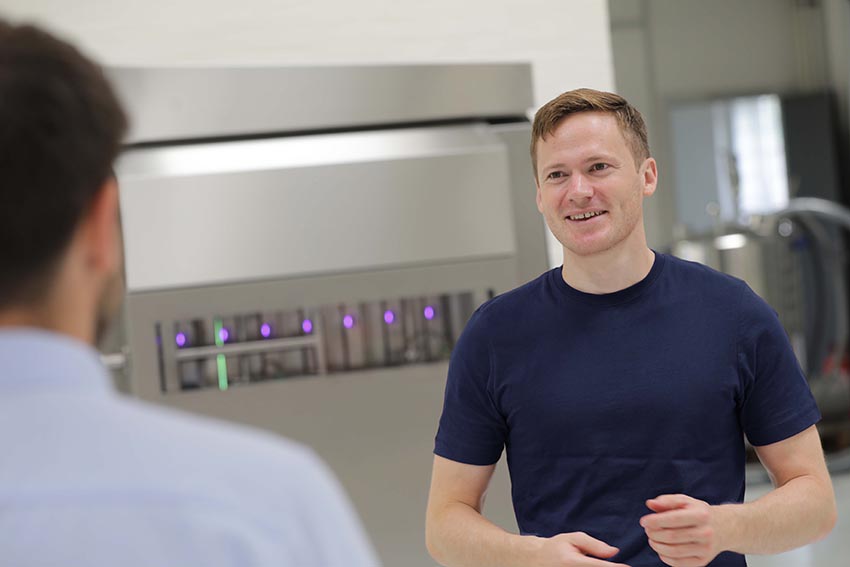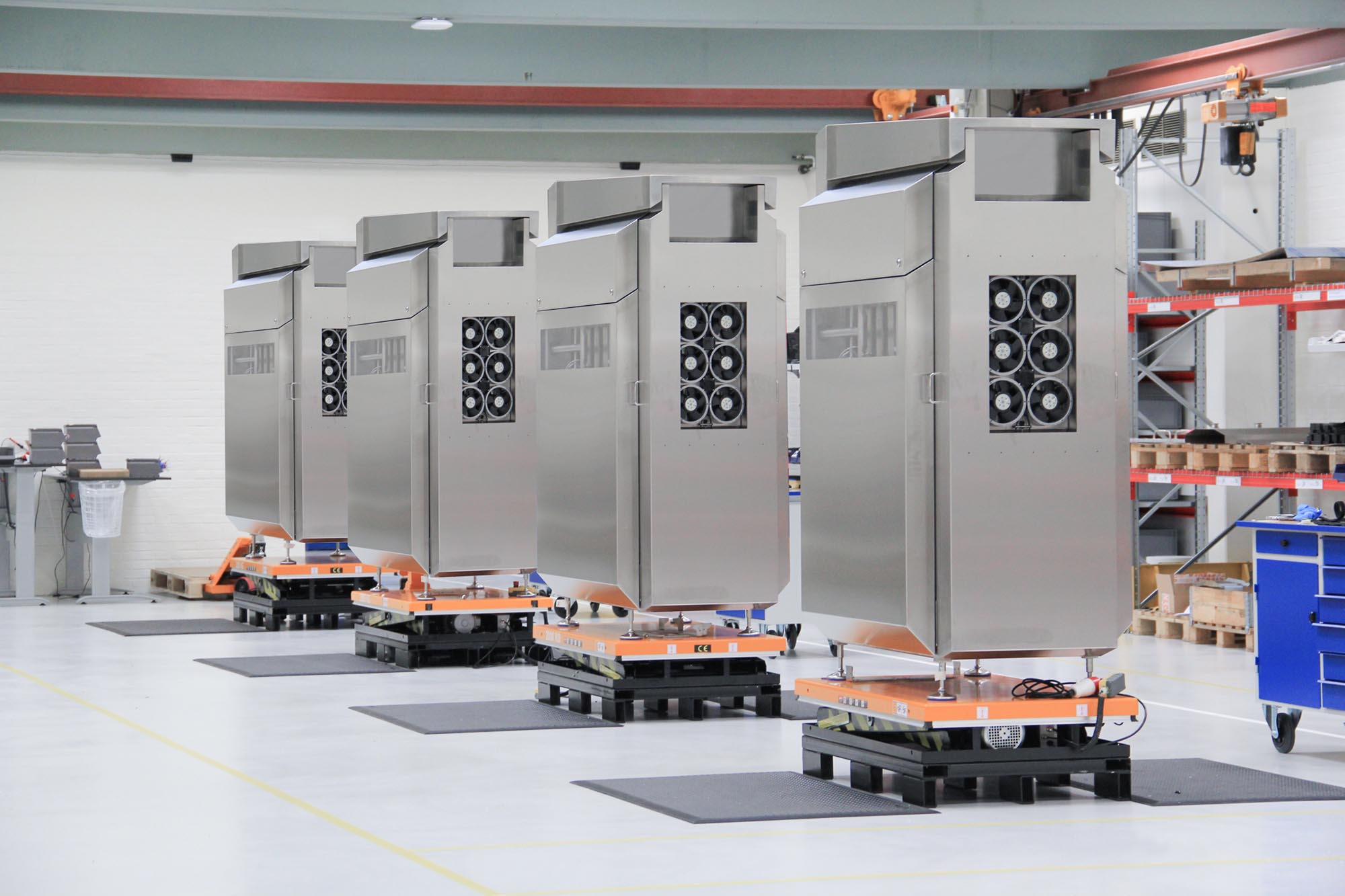Founded in 2017, Lyras is a Danish industrial machine manufacturing company based in Aalborg, Denmark. The company develops, produces, and delivers a non-thermal, UV-based pasteurisation replacement for the liquid processing industry, called raslysation. By switching from conventional thermal pasteurisation to the less resource-intensive raslysation technology, customers can reduce their energy and water consumption by 60-90% and 60-80% respectively.
By 2030, the company aims to have saved the food industry 1.000.000 metric tons of CO2, equivalent to 180,000 Europeans’ annual use. Lyras has representatives in Spain, Italy, the UK, the Netherlands, Turkey, New Zealand, and Australia, and has sales and services worldwide.
Interview with Mark Kalhoej Andersen, CCO of Lyras.
Easy Engineering: How was 2022 for your business, a short summary?
Mark Kalhoej Andersen: 2022 was the year in which we had our technology acknowledged by the large multinational companies Novozymes and Arla Foods when they placed orders on Raslysation™ Systems for treatment of industrial fermentation and brine respectively.

E.E: What new products/services will be launched this year?
M.K.A: This year we plan to strengthen our organization globally, allowing us to provide our products and services in more countries.
E.E: How did the market change in the last year?
M.K.A: The food industry has naturally been affected by the staggering energy prices and unstable gas supplies caused by the energy crisis. This has initiated a series of dialogues with big, multinational companies whose interest in energy optimization, CO2, ESG and climate-friendly solutions has increased. Fortunately, we are in a position where our technology can be part of the solution for these companies. By replacing their conventional pasteurization, microfiltration or depth filtration technologies with our light-based Raslysation™ technology, companies will be able to simplify production processes and remove hidden costs, which will ultimately help them drive energy and cost reductions. Because Raslysation™ is far less resource-intensive than pasteurization, microfiltration and depth filtration, the disruptive food tech also has the potential of securing these companies an improved sustainability profile.

But most importantly, by implementing Raslysation™, productions can increase both product quality and yield as costs can be transferred from general maintenance and CIP procedures to scaling of the production. This will facilitate growth, increase efficiency, change development agendas, and ultimately increase turnover
E.E: What were the best-selling products of 2022?
M.K.A: The dairy and blood plasma industries has been our main customers for the past year. Customer demand in 2022 has been for the Raslysation™ Spica system for treatment of brine and cooling water related to cheese processes. We have also had a list of multinational production companies that have inquired about the Raslysation™ Sirius system for treatment of whey and blood plasma.

E.E: What sector of business do you think is expected to grow this year?
M.K.A: This year we expect an increasing demand for Raslysation™ systems for treatment of juices and industrial fermentation.
E.E: What estimations do you have for 2023?
M.K.A: We expect significant growth in the abovementioned industries: juice and industrial fermentation.

E.E: A short message for collaborators for the beginning of the year.
M.K.A: We are grateful for last year’s customers, for their collaboration and proactive approach to changing core processes in their productions. We would like to thank them for their trust in us and our technology and the possibilities it brings in relation to optimizing processes, increasing value, and improving sustainability profiles.
Ruben Riksted


